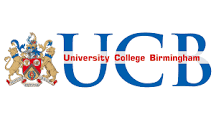The Access to HE Diploma is a Level 3 qualification equivalent to A-levels. It is designed for individuals who do not have traditional qualifications or a formal educational background, providing the necessary skill set to progress onto study at university and a subsequent career in a relevant field

Do you have a strong interest in data science? Want to study this subject at university level, but don’t currently meet the entry requirements for a degree? Our Access to Higher Education Diploma (Data Science) is designed to give adult learners an intensive introduction to this field, as well as boosting your study skills to prepare you for higher education.
The Access to HE Diploma is a Level 3 qualification equivalent to A-levels. It is designed for individuals who do not have traditional qualifications or a formal educational background, providing the necessary skill set to progress onto study at university and a subsequent career in a relevant field.
As well as enhancing your academic skills, our one-year course lets you explore a range of areas in the field of information technology (IT), including data analysis and advanced mathematics, data science, a foundation of machine learning and an introduction to Python programming.
By completing this Access to HE Diploma, you will be able to take your first step towards a wide variety of industry careers, from systems analyst or data scientist to financial analyst or database developer. You will also be ready to embark on a range of degree-level courses within the computing sector.
Course breakdown
Topics you will study
Introduction to Python
Data and Data Science
Foundations of Data Analytics
Foundations of Machine Learning
Machine Learning Methods and Models
Study Techniques
Optional modules:
Computer System
Programming Principles
Understanding Organisational Security
Software Design and Development
Fundamental of SQL
Entry requirements
Our Access to Higher Education Diploma course has been designed for students who have not had the opportunity to access higher education.
Academic requirements
GCSE English (Language) and Maths at grade 4 (grade C) or equivalent (does not include Functional Skills)
Supporting documents required
Applicants will also be required to submit a reference from a previous or current employment role.
Guaranteed progression
Students who achieve 56 UCAS points or more from this qualification will automatically be guaranteed a place on a degree course at University College Birmingham. Some undergraduate courses require additional entry requirements, so applicants are advised to check entry requirements before applying.
History of University College Birmingham
With more than 7,500 students, University College Birmingham today is unrecognisable from the small Victorian classes where it all started.
Today, hospitality managers, aviation executives, dazzling hairdressers and makeup artists, educators, chefs, bakers, tourism industry experts, business leaders and creative entrepreneurs learn skills for life at a university hailed for its vocational training, academic achievements and cultural diversity.
We have invested £160 million in our campuses and facilities, including building McIntyre House and Moss House, since 2014. These ambitious projects represent a bold statement of intent beyond the dreams of Birmingham’s early educational pioneers.
here is, however, a common theme. Then, as now, cookery was of the moment; and students and employers in the 21st century owe a debt of gratitude to municipal reformers such as Joseph Chamberlain who backed the cause of cookery at UCB’s forebear, Birmingham Municipal Technical School, in the 19th century.
A report in the Birmingham Daily Post of November 7, 1874 recalls a meeting of the Birmingham School Board, presided over by the then chairman, one J Chamberlain.
The Board was told that the Education and School Management Committee had considered the “advisability of introducing instruction in practical cookery and household work as part of the ordinary school course.”
The committee suggested “experimental buildings” should be built at two schools to replicate the “ordinary size and ordinary character found in the cottages of working people.”
There should be “no special appliances for cooking” and the girls would be taught to cook with “ordinary utensils, at the ordinary fires, the ordinary food of the class to which they belonged.” It was a visionary, albeit no frills, educational development.
The fledgling culinary arts were sparking wider interest. By the 1880s, the Midland School of Cookery occupied a “large apartment” with a larder, scullery and a gas stove at the Midland Institute in Birmingham.
Up to 100 women and professional cooks attended lessons in “high-class” cookery five mornings a week. By 1891, cookery classes were delivered at the Birmingham and Midland School of Cookery at 117 Colmore Row, focusing on “high-class cookery, cottage cookery and vegetarian cookery.”
Archives suggest domestic cookery classes were taught throughout the First World War at the Municipal Technical School, which became the Central Technical College in 1927.
As the institution added new courses and changed its focus, there were numerous further name changes including, in the 1950s, the College of Food and Technology, featuring a department of bakery and domestic science. Just a year later, it was renamed again and became the Birmingham College of Food and Domestic Arts.
The College, which had operated from nine city and suburban schools, came under one roof in 1968 when the Duke of Edinburgh opened a new £1.5 million building on Summer Row.
The building was designed to house up to 1,000 students and included a hostel for 57 female students boarding on a dinner, bed and breakfast basis.
In 2002, the institution transferred to the higher education sector, providing both outstanding higher and further education courses with a strong vocational focus.
University College Birmingham was officially born in November 2007 when the Privy Council granted taught degree awarding powers.
Full university status followed in December 2012 as part of moves to diversify the university sector and improve student choice.
With many of its degrees accredited by the University of Birmingham, UCB has undergone a remarkable transformation and values it culturally diverse, outward facing global perspective.
It is a truly international university that delivers specialist courses to 900 overseas students from 65 countries as diverse as China, Pakistan and Saudi Arabia. UCB has amassed an impressive array of accolades and awards over the years.
The lion’s share of recruitment is now in higher education, comprising 70% of UCB’s intake compared with 30% on further education courses. Students can study everything from certificates and diplomas to degrees and postgraduate qualifications.
However, the defining ethos of the institution has remained a constant – to give students, regardless of their background, the opportunity to succeed and to offer, in the motto of the University’s coat of arms, “service before self.
Mission
University College Birmingham's mission is likely to focus on the following aspects:
Professional and Vocational Education UCB is committed to delivering practical and industry-relevant education that equips students with the skills and knowledge needed to excel in their careers.
Industry Engagement: The university aims to maintain strong partnerships with industries, businesses, and employers to ensure that its programs are aligned with current market needs and trends.
Student-Centered Approach: UCB strives to provide a supportive and student-centered learning environment that fosters personal and professional development.
Innovation and Excellence: The institution likely aspires to continually innovate its programs and teaching methods, while maintaining high standards of academic excellence.
Vision
University College Birmingham's vision might encompass the following goals:
Leading Applied Education: UCB likely envisions itself as a leading institution in providing applied education, producing graduates who are well-prepared for the challenges of the modern workforce.
Global Recognition: The university may aim to achieve recognition on a national and international level for its contributions to vocational education and its impact on various industries.
Graduate Success: UCB likely aims for its graduates to be highly sought-after professionals who make meaningful contributions to their fields and communities.
Innovative Learning Environment: The institution might envision fostering a dynamic and innovative learning environment that utilizes the latest teaching methods and technologies.
Community Engagement: UCB may seek to actively engage with the local community, businesses, and organizations to create mutually beneficial partnerships and initiatives.

Power BI brings together an Analytics services which transforms data into visuals formats & the ability to share with colleagues, the power to explore & analyze the data both on premises or the cloud.

From this Artificial Intelligence and Machine Learning course, you will experience the change, not in the HCI (Human-Computer Interaction), and how the machines are getting smarter by taking their own decision without any human intervention.

This one to two-day course will provide you with the skills you need to create useful, dynamic, interactive reports that visualise your data using Power BI dashboards. These visualisations can be used to provide insights that will help your business improve its performance.

This 1 day course covers the essential skills in Power B: Connecting, Extracting & Loading data into the Data Model, then Visualising it with a rich set of Graphics, Charts and Dashboards.

???????This 1 day course covers the essential skills in power b: connecting, extracting & loading data into the data model, then visualising it with a rich set of graphics, charts and dashboards.
© 2025 coursetakers.com All Rights Reserved. Terms and Conditions of use | Privacy Policy